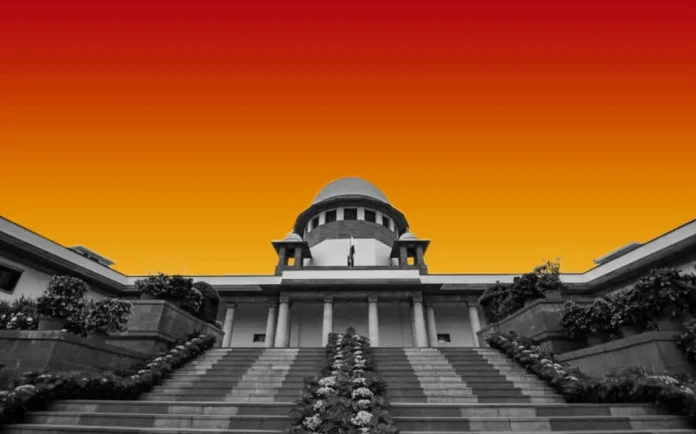The Supreme Court Bar Association (SCBA) and the Supreme Court Advocates-on-Record Association (SCAORA) have jointly filed a petition in the Apex Court seeking a declaration that appearances of all Advocates present in a case should be recorded in the orders as per the Supreme Court Rules.
The move followed an observation made by the top court of the country in 2024.
While hearing the Bhagwan Singh vs State of UP, the Apex Court had observed that Advocates-on-Record may mark the appearances of only those Advocates who were authorised to appear and argue the case on a particular day of hearing.
The petitioners contended that the said observation was contrary to the settled practice followed by the Supreme Court to mark the appearance of all the counsels who have contributed to the proper adjudication of a particular case.
They pointed out that the role of an Advocate was not limited to making submissions, more so when he/she was appearing before the highest constitutional court of the land.
It may extend to doing research of relevant case laws, securing appropriate instructions from the client, preparing the brief for the Senior Advocate, making written submissions for the Court, drafting the pleadings and filing of the case before the court. A lot happened before a case could be heard and adjudicated by this Court, they added.
The writ petition, filed under Article 32 of the Constitution by Advocate Astha Sharma, submitted that a narrower interpretation of appearance to mean only to make submission before the Court would be a discredit to various functions performed by an Advocate.
It said as a general practice, an Advocate-on-Record included the names of the Advocates who had assisted in drafting of the case, briefed the Senior Advocates or lawyers who represented the party before the lower courts, including Junior Advocates from the office of a Senior Advocate, who had been involved in the matter.
This practice had been adopted to recognise the contribution made by various Advocates to present a case before the Supreme Court, it added.
Noting that restricting the Advocates to enter appearances only of the Counsel who had argued the matter would be prejudicial to the efforts put in by other lawyers, the petitioners prayed that general guidelines be passed for marking of appearances, so that all Benches of the Supreme Court followed uniform practices in marking appearances.
The guidelines should take into consideration the efforts put in by the entire team of Advocates, who religiously and dedicatedly worked on a brief. Marking their appearances in the matter would ensure that their efforts were duly recognised, they added.
The writ petition, settled by Senior Advocates Kapil Sibal, Atmaram Nadkarni, Rachana Srivastava and Gagan Gupta, highlighted the importance of recording of the appearances for the professional growth of an advocate.
It said the number of appearances acted as a barometer of an Advocate’s professional practice in the Supreme Court. It also played a crucial role in determining the right to vote in elections, eligibility for allocation of chambers, senior designation and government empanelment. Further, non-recording of appearances demoralised junior advocates, noted the plea.
The petition pointed out that the norms regarding marking of appearances were laid down through the rule-making powers of the Supreme Court on its administrative side. Therefore, a judicial direction on this aspect amounted to an “overreach”.
It further noted that the directions affecting the legal fraternity were passed without hearing the advocates collectively or the associations.
Besides, this aspect was not an issue in the particular case in which the directions were issued. The associations stated that they filed a miscellaneous application seeking modification of the directions on lawyers’ appearances made in the Bhagwan Singh case.
The petitioners contended that the general practice directions passed in order dated September 20, 2024 in SLP (CRL.) D.NO.18885 of 2024 could not comprise a judicial order considering that there was no lis pending before the Apex Court which would warrant such directions.
It was for this reason that none of the affected parties – the Advocates practising before this Court or through their registered bodies, that is the petitioners herein, were heard in this regard, they added.


